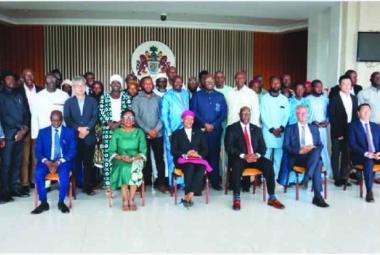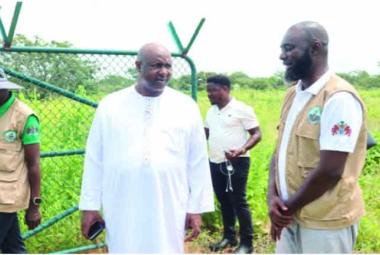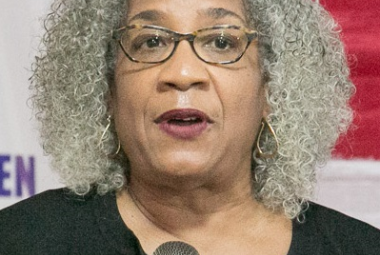By Lamin Kujabi
The Director of the Department of Agriculture (DoA), MrMusa M. Humma, has expressed optimism that harvests of this year’s cropping season will be good, following his tour of the country to assess the situation of the crops. “The pre-harvest survey is not yet to be out to give the exact figures but from what was seen, we have realized that there is an increase in the cultivated area compared to the previous years,” he stated.
Mr Humma was speaking to Gambia Daily in an exclusive interview at his office in Cape Point, Bakau.
He reported that the crops generally look healthy and “very promising, as the leaf sizes are big, long and green, which are indicators of good yield”.
He further noted that there has been a good amount of rainfall this year. ‘‘The amount of moisture that is left in the soil will help crops to end well because the first phase of crops has been harvested and the second phase are at [maturing] stage, and do not need more rains to complete”.
The Director went on to highlight government’s interventions that are paying dividend.
“The Government this year came up with a policy of providing input support to the farmers; in the form of seeds, fertilizers. Some projects have helped farmers in land preparation, which is one of the biggest challenges of farmers”.
He added that the project ploughed some fields for the famers and provided seeds that are certified which are climate-resilient and very high yielding.
However, Mr Humma lamented that the number of people engaging in farming is declining. He went on to highlight the contributing factors. “One of them is the fact that farming is not as lucrative as it used to be in the past and the soils are almost dead right now. One needs a lot of fertilizers to rejuvenate them for them to get the type of yield that they use to get’’.
He said farming has been regarded as the profession of the poor and that young people are either traveling to Europe through the ‘backway’ or engaging in rural- urban migration.
On the government’s support to private investment in agriculture, Director said government is supporting Marou Farms with millions of Dalasi with marching grant, and that last year they were given 20 tractors with their accessories. The other ones that are coming up he mentioned are: Jalawola, Baldeh Farms and Qgroup.
He expressed the Ministry’s commitment to encouraging private sector to involve in agriculture in general, but more especially rice - our staple food. “We are doing everything we can and encouraging private sector to involve in rice production,’’ he said.
“There are deliberations for the Ministry of Agriculture to attain food-self-sufficiency in rice, and the ministry has a vision to maximise the use of different rice ecologies in the country - upland, mangrove, irrigated perimeters lowlands”.
He added that research will work on identifying salt-tolerant rice fields with different varieties for salt resistance.
The Director explained that the National Agricultural Research Institute (NARI), in consultation with the Department of Agriculture and National Seeds Secretariat, as well as the farming community, is working on the adaptation of the rice varieties.
‘‘We are talking about participatory research; all the major stakeholders will be present, to do the research together and arrive at a result that we all desire to promote and adopt and move with it,’’ he said.






